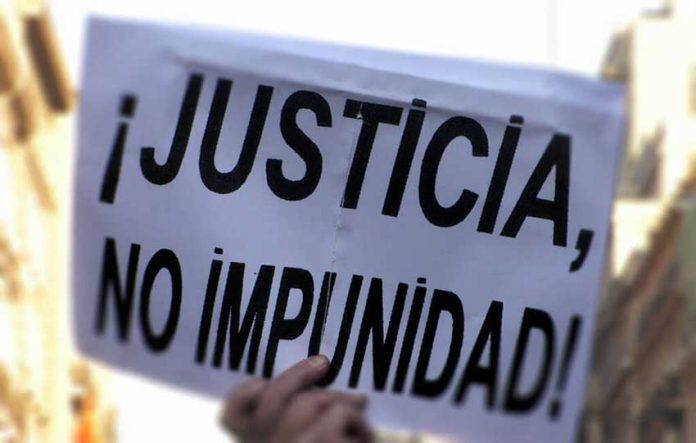The probability of a crime being reported, investigated and solved in Mexico is just 1.14%, according to an investigation conducted by the organization Impunidad Cero (Zero Impunity).
At the presentation of the study State Index of the Performance of Attorney Generals’ Offices 2018, researcher Guillermo Zepeda Lecuona explained that the 1.14% figure was obtained through data that shows that only 6.8% of crimes in Mexico are reported and that just 18% of those cases are solved.
Zepeda said the statistics come from surveys conducted by the National Institute of Statistics and Geography (Inegi) in 2017, meaning that they mainly relate to crimes committed and reported in 2016.
The Impunidad Cero index improved slightly compared to the previous results, which showed that the probability of a crime being solved was 1.09%, but Zepeda said the conviction rate is “still very poor” and charged that it is due to a bottleneck in the justice system.
The overall impunity rate in Mexico is almost 99%, while for intentional homicide it is 83.4% and for kidnapping it is 69%.
“The impunity [rate] for kidnapping is the lowest [of high-impact crimes] but it’s still very high for such a serious crime,” Zepeda said.
Oaxaca has the highest impunity rate for intentional homicide in Mexico, at 97%, while Yucatán has the lowest rate at 26%.
Nearly 70% of murders go unpunished in Mexico City, the investigation found.
The Impunidad Cero study showed that Sonora is the most overburdened state in terms of the average number of investigations each prosecutor’s office is conducting at any given time — 544, while filing a complaint takes longest in Guerrero, where the process takes an average of three and a half hours.
In contrast, the same process takes on average just an hour and 25 minutes in Chihuahua, making it the most efficient state in which to file a criminal report. The national average is two and a quarter hours.
Mexico City spends more on law enforcement and the provision of justice than any other state in the country, with an outlay of 696 pesos (US $37) per person, while Tlaxcala spends the least, with per-capita expenditure of just 93 pesos (US $5).
Nevertheless, just 2% of residents in the capital said they had confidence in local judges.
At a national level, 10.3% of people surveyed by Impunidad Cero said they had a high level of confidence in their state’s attorney general’s office, with trust highest in Yucatán at 17.8%.
The investigation also found that only half of arrest warrants issued by judges in state courts are successfully executed.
Coahuila has the best record in that respect, executing 76.5% of all warrants, while Nayarit has the lowest rate at just 12.7%.
When criminals are prosecuted, in 53% of cases they receive prison terms of three years or less, which the Impunidad Cero study said is indicative of “poorly focused criminal policy.”
Irene Arista, executive director of the anti-impunity group, agreed with Zepeda that there is a bottleneck in the justice system, charging that state-based attorney general’s offices are focusing their efforts on achieving political autonomy to the detriment of their core functions.
Source: Sin Embargo (sp)
